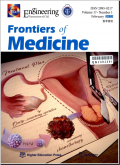Regulations of m6A and other RNA modifications and their roles in cancer
RNA modification is an essential component of the epitranscriptome, regulating RNA metabolism and cellular functions. Several types of RNA modi?cations have been identified to date; they include N6-methyladenosine (m6A), N1-methyladenosine (m1A), 5-methylcytosine (m5C), N7-methylguanosine (m7G), N6,2?-O-dimethyladenosine (m6Am), N4-acetylcytidine (ac4C), etc. RNA modifications, mediated by regulators including writers, erasers, and readers, are associated with carcinogenesis, tumor microenvironment, metabolic reprogramming, immunosuppression, immunotherapy, chemotherapy, etc. A novel perspective indicates that regulatory subunits and post-translational modifications (PTMs) are involved in the regulation of writer, eraser, and reader functions in mediating RNA modifications, tumorigenesis, and anticancer therapy. In this review, we summarize the advances made in the knowledge of different RNA modifications (especially m6A) and focus on RNA modification regulators with functions modulated by a series of factors in cancer, including regulatory subunits (proteins, noncoding RNA or peptides encoded by long noncoding RNA) and PTMs (acetylation, SUMOylation, lactylation, phosphorylation, etc.). We also delineate the relationship between RNA modification regulator functions and carcinogenesis or cancer progression. Additionally, inhibitors that target RNA modification regulators for anticancer therapy and their synergistic effect combined with immunotherapy or chemotherapy are discussed.
RNA modification、writers、erasers、readers、regulatory subunits、PTMs、cancer
18
2024-09-26(万方平台首次上网日期,不代表论文的发表时间)
共27页
622-648







